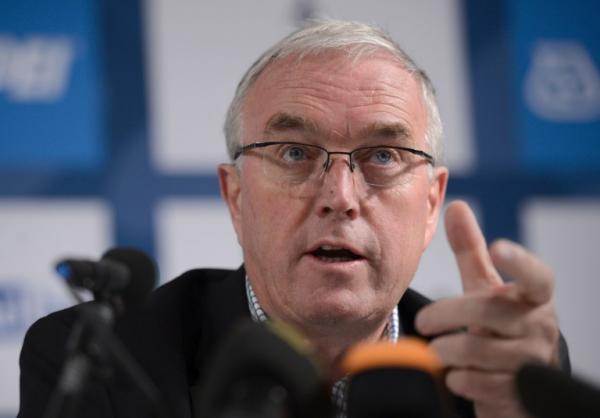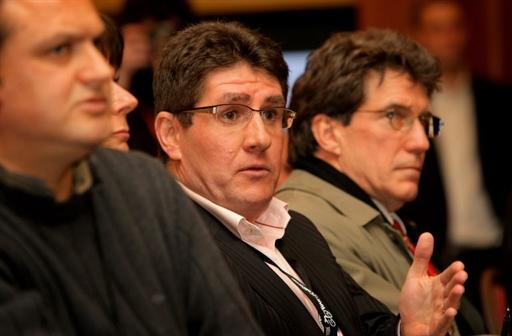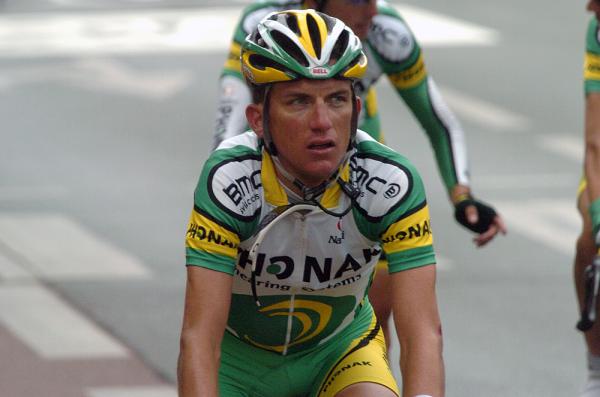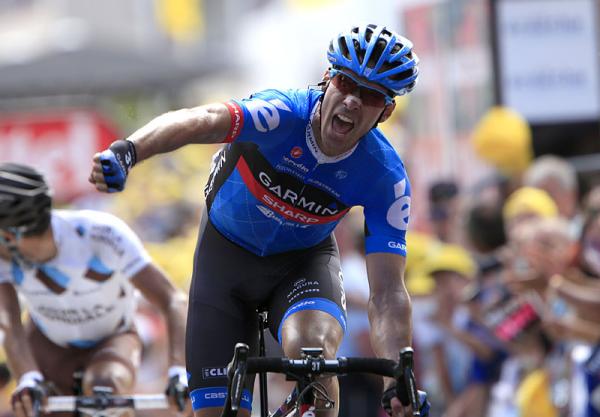McQuaid: Landis and Hamilton are far from heroes
UCI president critical of Kimmage and Hamilton's confessional books




It was an April 2010 email from Floyd Landis that gave impetus to the twin investigations by the FDA and USADA that ultimately led to Lance Armstrong being stripped of his seven Tour de France titles. After drawing ridicule for his attempts to contest the positive test for testosterone that saw him stripped of the 2006 Tour, Landis' frank confession and unmasking of the doping culture that pervaded at US Postal saw his reputation rehabilitated in many quarters.
Following his announcement that the UCI would not contest USADA's reasoned decision on the Armstrong case in Geneva on Monday, however, president Pat McQuaid poured scorn on the apparent lionisation of Landis and his fellow former US Postal Service rider Tyler Hamilton for providing evidence to USADA about the doping system in place at the team.
"Landis started it. He was in a bottomless hole and he said the only way out of it was to bring the sport down. That's what he intended doing and what he intends doing, but he won't achieve it," McQuaid told reporters.
"Another thing that annoys me is that Landis and Hamilton are being made out to be heroes. They are as far from heroes as night and day. They are not heroes, they are scumbags. All they have done is damage the sport."
McQuaid went on to point out that Hamilton had been summoned to UCI headquarters in Aigle in 2004 to explain suspicious blood values, and had failed to make a truthful disclosure. The American subsequently tested positive for a blood transfusion.
"We called him and he said "the machines are wrong, I'm not doing anything wrong,'" McQuaid said. "He then went positive two or maybe three times and was eventually thrown out of the sport. He spent the next three or four years trying to prove that he had a twin before he was born or something like that and tried to prove the scientific community wrong. He eventually lost that, he lost his money and unfortunately he lost his marriage I think as well."
Books
The latest race content, interviews, features, reviews and expert buying guides, direct to your inbox!
In September 2012, Hamilton published his autobiography, entitled "The Secret Race", in which he detailed his own doping and the cheating practices in place at US Postal, CSC and Phonak, but McQuaid questioned his motives for writing the book.
"Then he writes a book and again, what's he trying to do? Make money on it. The book comes out just two weeks before the USADA report comes out and he's on the trail now giving interviews and making money. What good is that guy doing the sport?"
When it was put to McQuaid that, regardless of the medium, it was surely a good thing that riders were choosing to break the omertà that has enshrouded cycling's doping culture for too long, the UCI president demurred.
"I do want people coming clean but in the way that he's done it, he's on a personal mission to make money for himself and it's not objective," said McQuaid, who then went on to allude to Paul Kimmage's autobiography "Rough Ride", a seminal account of cycling's failure to tackle its doping culture, which the Irishman wrote on his retirement from professional cycling at 1989.
"I've criticised Paul Kimmage about this in the past as well – when a guy writes a book, he writes it for commercial reasons. Maybe for an objective or for a philosophical reason too, but also for commercial reasons. And when he spends the rest of the time just promoting his book, he's there just to make money. Then I wonder where the objectivity goes."
But while McQuaid suggested that Kimmage – against whom he has instigated defamation proceedings in a Swiss court – and Hamilton had written partly or wholly for commercial gain, he insisted that David Millar's 2011 confessional autobiography, "Racing Through the Dark", was an entirely different case.
"No, because when Millar wrote the book, he wrote it and published it and then I never heard a word about it after that," McQuaid said. "He didn't do a huge amount of promoting of his book and he doesn't to this day. Millar gave an interview on Cyclingnews today and he didn't mention his book. Every time you hear Tyler Hamilton, he's mentioning his book."
In fact, David Millar's Twitter profile explicitly promotes his book, as is his prerogative as an author. On the publication of "Racing Through the Dark", Millar appeared at book festivals, gave numerous promotional interviews and also had an extract published in Procycling magazine. A wine reception was also held in the Vendée on the eve of the 2011 Tour de France to promote his book.
For his part, when Paul Kimmage returned to the Tour de France in 1990 as a journalist for the Sunday Tribune following the publication of "Rough Ride", he endured two of his closest former teammates calling him a prostitute and turning their backs on him.

Barry Ryan was Head of Features at Cyclingnews. He has covered professional cycling since 2010, reporting from the Tour de France, Giro d’Italia and events from Argentina to Japan. His writing has appeared in The Independent, Procycling and Cycling Plus. He is the author of The Ascent: Sean Kelly, Stephen Roche and the Rise of Irish Cycling’s Golden Generation, published by Gill Books.